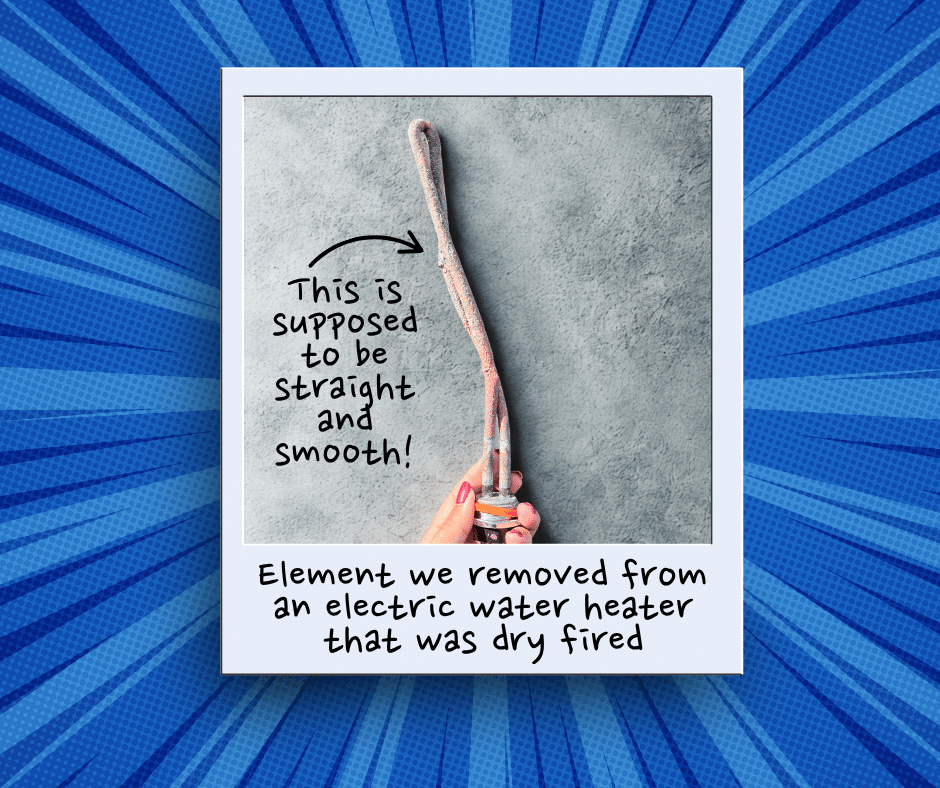Water heaters are one of the hardest-working appliances in your home. Whether you have an electric water heater or a gas/propane unit, they’re designed to safely heat water that’s already inside the tank. But if a water heater is turned on before it’s full of water, something called a “dry fire” can occur — and it can cause major (and often permanent) damage.
Electric Water HeatersDry Fire = Burnt Elements
In an electric water heater, the heating elements sit inside the tank and rely on being completely submerged in water. Water absorbs the heat and carries it throughout the tank.
If the tank is empty (or not full) when the power is turned on, the elements are exposed to air.
Without water to cool them, they can overheat in seconds, blister, crack, or completely burn out.
A “dry fired” element almost always needs to be replaced before the water heater will work again.
Think of it like running a toaster with no bread in it — except instead of a $30 toaster, it’s the heart of your hot water system!

Gas & Propane Water HeatersDry Fire = Tank Damage
Gas and propane water heaters don’t have elements. Instead, they heat the bottom of the tank with a flame from a burner.
If the tank is empty when the burner ignites, there’s no water to absorb and distribute the heat.
The thin steel at the bottom of the tank can warp, crack, or even rupture under the intense direct heat.
Unlike electric models where you can swap out an element, a dry-fired gas water heater is usually ruined and must be replaced.
That makes dry firing a gas or propane unit an even more expensive mistake.
How To Avoid A Dry Fire
The good news? Dry firing is completely preventable with a little care during installation or restart:
- Always Fill First
Before restoring power (electric) or lighting the pilot/burner (gas/propane), make sure the tank is full.
Open a hot water faucet in the house and let it run until a strong, steady stream comes out. This means the tank is filled and all the air has been purged.
- Double-Check Power and Gas
For electric heaters, keep the breaker off until you’ve confirmed water is flowing from the hot tap.
For gas/propane, don’t relight the pilot or turn on the gas valve until the tank is verified full.
- Call a Professional
If you’re unsure, it’s always safest to have a licensed plumber handle the start-up. We know exactly how to prime and check a water heater so you don’t end up with a costly dry fire.
